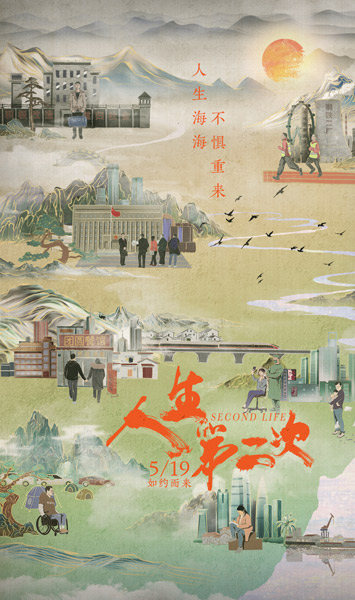

Like Reunion Restaurant, six other stories in the series have a resonance among the viewers. The exception is the sixth episode No Looking Back. The lens follows Mao, who spent 11 years in prison, on his journey home and back into society. It shows how his parents and girlfriend waited for Mao. When he went behind bars, his daughter was just 33 days old.
"It is the most controversial episode and I sensitively feel that the topic challenges public perception. Many viewers question why to film such a man and the unspoken words indicate that such people do not deserve a second chance," Qin says.
"We want to face the reality along with our viewers that there are many people, like Mao, and after time has been served, how they integrate into society is a question to be discussed," Qin adds.
According to the episode director Sun Gongxu, China has over 600 prisons, incarcerating more than 1.6 million people, and behind the numbers are profound issues such as the challenges of prisoner re-entry into society and preventing them from returning to crime.
"Mao is a man who summons up his courage to face society directly and raises his chest to be a man. His story reflects the theme of Second Life," Sun says on social media.
Second Life is part of a planned "life-themed" documentary trilogy. In 2020, The Firsts in Life premiered and became popular online, focusing its lens on the 12 first-time moments of great significance to Chinese people, such as birth, marriage and career.
"In my eyes, the trilogy can be taken as the three distinct life stages-childhood, adulthood and old age. The Firsts in Life is similar to childhood, with curiosity and excitement; Second Life is similar to adulthood, coping with unexpected life events and struggles; and the last one will be similar to old age, when people look back on their whole lives," producer Zhang says.
"Life is like a long river with ups and downs. When we record others' stories, we experience our own growing-up," he adds.